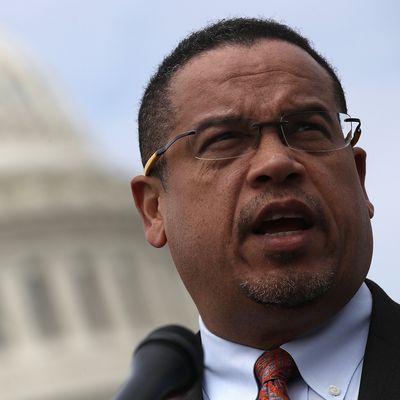
Two days ago Minnesota governor Tim Walz announced that his state’s attorney general Keith Ellison would take over prosecution of the George Floyd criminal case from Hennepin County prosecutors. He had the reasonable expectation that the African-American progressive Ellison would inspire more trust among those protesting Floyd’s death in the hands of local police than a local prosecutor’s office with a troubled history in cases of police misconduct.
Ellison’s first move, as reported by the Minneapolis StarTribune, is likely to please those fighting for justice for Floyd:
Attorney General Keith Ellison plans to elevate charges against the former Minneapolis police officer who knelt on George Floyd’s neck while adding charges of aiding and abetting murder against the other three officers at the scene, according to multiple law enforcement sources familiar with the case.
Ellison is expected to provide an update this afternoon on the state’s investigation into Floyd’s death. According to sources, former officer Derek Chauvin, recorded on video kneeling on Floyd’s neck as he begged for air on May 25, will now be charged with second-degree murder.
The other three officers at the scene — Tou Thao, J. Alexander Kueng and Thomas Lane — will also be charged with aiding and abetting second-degree murder, according to the sources, who spoke on conditions of anonymity. Chauvin was arrested last Friday and charged with third-degree murder and manslaughter.
Under Minnesota law you cannot have criminal accomplices in a third-degree murder case (it’s one of just three states with an option for third-degree murder, which involves no intent to kill). So by elevating the charge to second-degree murder (which can either involve an intent to kill or killing in the commission of a felony) the state gets a twofer: a potentially longer sentence (a maximum of 40 years instead of 25 years) and bringing to justice the other three officers. If you are wondering why Ellison isn’t bringing first-degree charges, you should be aware that aside from the higher proof requirements (intent to kill with forethought), first-degree murder charges in Minnesota can only be brought by a grand jury, which in police misconduct cases can be an iffy proposition.
Strangely enough, the very act of announcing Ellison’s decision has become controversial:
Guess you can’t blame her for trying.






























